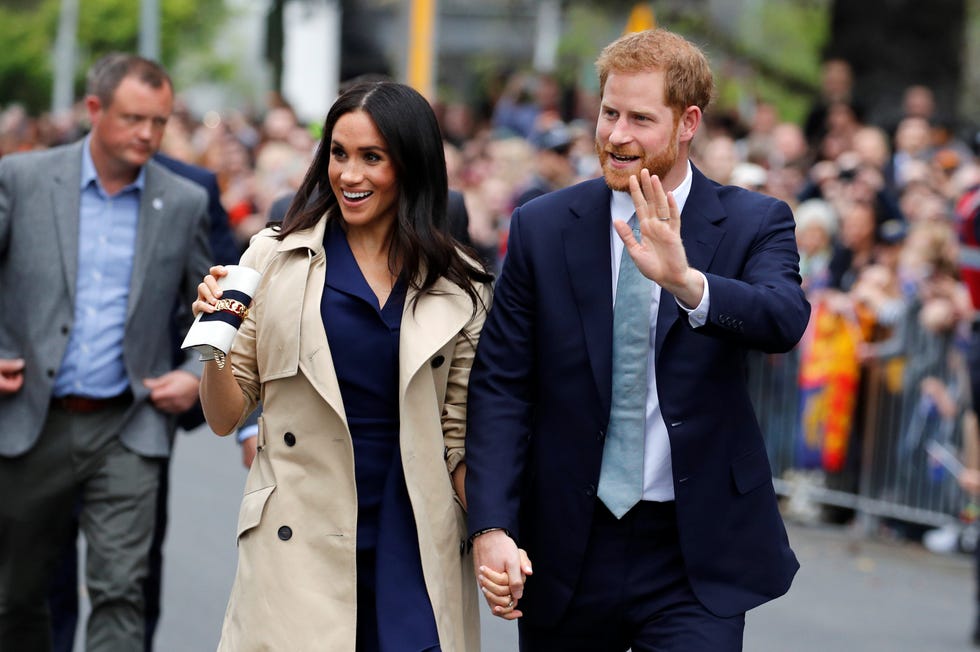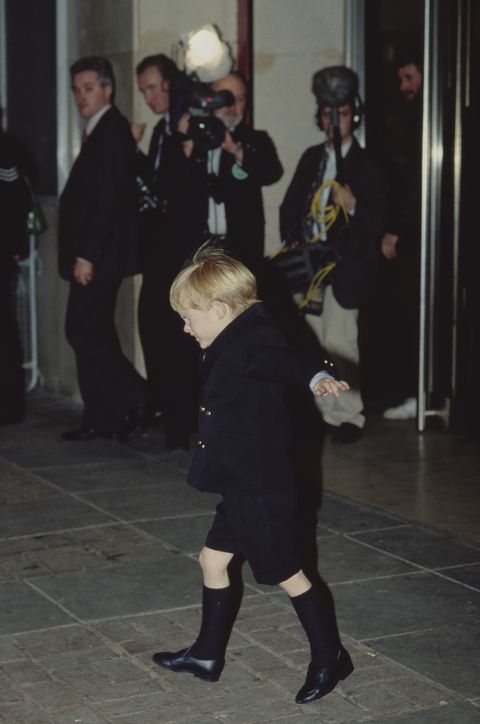Prince Harry Opens Up About Media ‘Exploitation’ in His Childhood and Today
In the new Netflix documentary series Harry & Meghan, Prince Harry gets down to the nitty gritty of the fraught relationship between the British press and the royal family. In one scene where he speaks to Meghan and their friend Mandana Dayani in November 2021, he digs into the “Royal Rota”—the group of journalists and royal correspondents assigned to cover the royal family.
“That press pack of royal correspondents is essentially just an extended PR arm of the royal family,” Harry says. “So there’s been an agreement that’s been there for over 30 years. If you’re part of the Royal Rota, you have priority over the story over everybody else.
“So all royal news goes through the filter of all the newspapers within the Royal Rota, most of which, apart from the Telegraph, happen to be tabloids. It all comes down to control. It’s like, ‘This family is ours to exploit. Their trauma is our story and our narrative to control.’”
“The Royal Rota is a system in which certain media are allocated spots to cover members of the family,” Tim Burt, strategic advisor to Archewell and vice chairman of Teneo, further explains in an interview. “And however aggressive their previous coverage might have been, they still get the right to be on the rota.”
As Harry and Meghan previously explained on their website, the outlets in the royal rota are: The Daily Express, The Daily Mail, The Daily Mirror, The Evening Standard, The Telegraph, The Times, and The Sun. Journalists from these papers are given exclusive access to royal engagements of members of the royal family and are “the predominant news source” worldwide for content about the royals. When the Duke and Duchess of Sussex announced their next steps after stepping back from senior royal duties, they announced they would “no longer participate in the Royal Rota system.”
The release of Harry & Meghan isn’t the first time the couple has opened up about their struggles with the press, but they do discuss the topic in more detail. Even in the first few minutes of the series, in a video he self-filmed in March 2020, Harry says, “This is about duty and service, and I feel as though being part of this family, it is my duty to uncover this exploitation and bribery that happens within our media.”
He also remembers dealing with the press as a kid. “The majority of my memories are of being swarmed by paparazzi,” he says. “Within the family, within the system, the advice that’s always given is, ‘Don’t react. Don’t feed into it.’ There was always public pressure with its fair share of drama, stress, and also tears. And witnessing those tears. I always see it on my mom’s face. And I guess those are the moments when I thought, ‘Hang on a little. What am I? Who am I? What am I a part of?’”
He adds, “Paparazzi used to harass us to the point where we had to be forced into smiling and answering questions to the traveling press pack. And that made me feel really uncomfortable from the get-go.”
The media attention got worse when he was attending school at Eton. “That’s when all of the stuff that had happened to my mom started happening to us,” Harry recalls in the docuseries. “Not every story was false, but there was a lot of typical exaggeration and rehashing. ‘He’s bouncing between the walls, he’s taking drugs, he’s drinking, he’s out late. He’s night-clubbing, he’s got a girlfriend here, he’s got a girlfriend there.’ What’s going on?”
He acknowledges that, as a royal, there will be interest in his life, but at times it went too far. “You know, there’s a difference between having to accept, ‘Okay, we have this position in this family and therefore, there’s going to be a level of interest,’ and being swarmed by paparazzi chasing you in cars through red lights. And then chasing you down the road on foot which is what happened probably about 30 or 40 times when I was younger. It was too much.
“Everything that was happening in the U.K. was so intense. I was trying to balance the whole experience of being a young boy who is trying to deal with the loss of his mom without much support or help or guidance. It didn’t seem right. It didn’t seem fair.”
And, of course, when Meghan entered the picture, he saw how the press and paparazzi treated her—often coupled with sexist and racist harassment—and knew something had to change. “To see another woman in my life who I love go through this feeding frenzy,” he says, alluding to his late mother Princess Diana, “that’s hard.”
Erica Gonzales is the Senior Culture Editor at ELLE.com, where she oversees coverage on TV, movies, music, books, and more. She was previously an editor at HarpersBAZAAR.com. There is a 75 percent chance she’s listening to Lorde right now.


